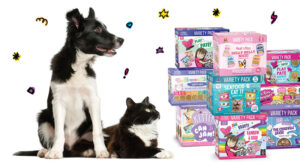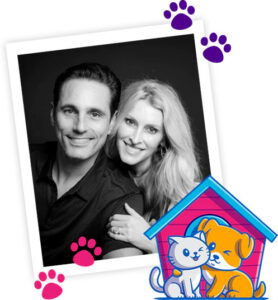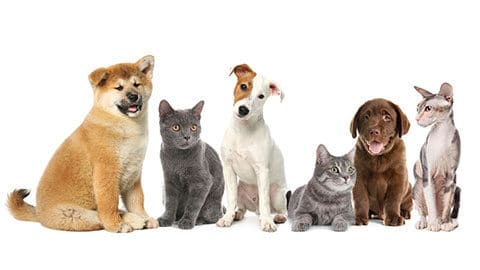
It’s that time of year when we reflect on what we have to be thankful for, and we try to do extra nice things for others…like our pets!
In the spirit of the Thanking Season, I want to thank Weruva for their steadfast and generous sponsorship of my NPR show DOG TALK (and Kitties, Too!). Weruva has been the premiere sponsor of my show almost since they launched the company in 2006. They have given unwavering support to my steadfast mission of educating and inspiring you to give your pets the best possible life.

When I first met David and Stacie Forman they were a young couple with a goal that sounded too pure and naive to succeed. They had launched their own company to make canned cat food at a facility that made human food. Nobody was doing such a thing at the time. Plus, they were stepping into a fiercely competitive and entrenched corporate arena where pet foods were owned by multinational mega companies with huge clout in promoting their products. Distributors and other “middle men” had control over getting pet food onto store shelves. Nobody would have believed that a couple who were newcomers to the business – and natural disruptors in wanting to do it their own way – could possibly succeed.
The Formans had a vision and they were brave. They started out by just walking into boutique pet stores in New York City, where they lived at the time.
They explained to the store owners how they made their cat food in the same facilities where their own family sourced a line of human food, using similar ingredients and processes. [Nobody told them that it would be financially unsustainable.].
They came up with the tongue-twister name WeRuVa for the company, based on the names of their own three kitties – Webster, Rudy and Vanessa .[Nobody did a market study of whether the public would like that oddball name.]
They didn’t use pet food manufacturers. [Nobody told them they were “Coloring outside the lines” and would not be taken seriously in the pet industry.]
They didn’t have a deal with a distribution company: they intended to just make the food according to their own standards and fulfill orders as they came in. David and his right-hand man Anthony Guidice traveled around the country, emptying cans of Weruva into a crockpot and eating spoonfuls themselves. [Nobody told them this was crazy, how could they eventually cover the whole country?]
Those first pet stores put some cans on the shelf, because who doesn’t love a David vs. Goliath story? Who doesn’t love the American entrepreneurial “can do” spirit? Nobody knew what would happen next, but it was an organic genuine success. Cat owners tried the food at those few stores and came back for more. It snowballed. [As it turned out, cats and their owners are pretty discerning and picky. In a sense, they became the Weruva early sales force.]
More food was ordered. More stores jumped on board with the newest, hottest thing in cat food. Success grew from word of mouth: quite literally it was the cat’s mouths, because they meowed and the stores lined up to answer. It wasn’t long before Weruva had to hire their own sales representatives to cover the United States – reps who went into stores and pitched the story of Weruva’s unique recipes and how they were made. [Nobody sold pet food this way and nobody would have believed it made economic sense to have a full time sales force for a small company, operating under the radar.]
We should all be thankful to David Forman for creating the delicious and whimsically-named cat and dog foods that have never wavered from their mission of using human-quality ingredients with simple recipes that are fully balanced without using any fillers or chemicals. They remain completely family-owned – in an era when venture capitalists have snapped up every possible pet food brand and gotten involved in how/where/when the food is made. Weruva’s ingredients continue to be “top shelf”quality, good enough for people to eat.
They make what has always been the gold standard, in my book, for cat food. They are focused on protein rich foods offering extra hydration- and no carbs! They have never even made dry food for cats (a much higher profit category) because the Formans believed me when I explained that dry food for cats is “kitty crack” – meaning that cats get “hooked” on carbohydrates which are not a natural food for them and lead to really serious health consequences (kibble for cats is directly responsible for causing diabetes in cats, along with urinary tract issues).
I’m thankful for Weruva. Now that you know their backstory – and their loyal support of my work – I hope you’ll give thanks for them, too.

